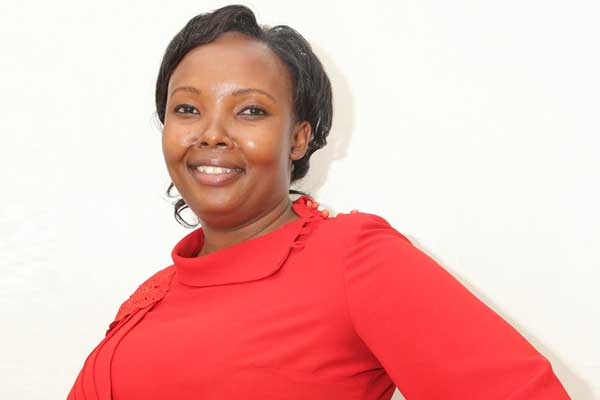
“I had met all the requirements for the tender I lost. I had the expertise, the experience and the staff to carry out the task. But I was disqualified because mine is a local company and for quoting Sh30,000 more than the company that won the tender,” she says.
Not one to take an unfair duel lying down, Esther filed an appeal at the Public Procurement Oversight Authority (PPOA).
“It was unfair to lose when the law said I was to be given preference. But even after filing a complaint, no action was taken,” she says.
Janet* who requested anonymity out of fear that she may be blacklisted in future for speaking out on the challenges, complains that the only opportunities that she can place a bid for fall under the open category, where she has to fight it out with men and seasoned businesses.
“In the open category, women hardly win any tenders,” says Janet, a co-partner in a data management firm.
“In my case, tenders relating to data management appear to be reserved for foreign companies and top local data corporates. They have more financial muscle making it hard for us to win despite our capabilities.”
SOFT GOODS AND SERVICES
Incidentally, most of the tenders in the preferential category for women and other special groups have been for supplies of soft goods and services.
However, Grace Korir, doesn’t mind supplying what some may see as soft stuff. These so-called soft tenders have been her bread and butter for some months now. Since last year, she has won three tenders worth Sh750, 000 in total for the supply of computer and office accessories.
“If there’s a tender for any supply that I can provide, I will not hesitate to apply as long as I am able to make some profit out of it.”
But while some women like Grace have not shied away from applying for such tenders, more established entrepreneurs feel that it is time the government widened the offering for preferential tenders to include more “serious” stuff.
Says Esther: “We can succeed more if the tenders set aside for women go beyond soft supplies like flowers and biros.”
A spot check by Saturday Magazine on previous and upcoming tenders showed that tenders for supplies like office accessories, stationery, charcoal, vegetables, detergents, uniforms, photocopy, cleaning services and branded t-shirts are the ones commonly set aside for women and other special groups.
Jane further points out that businesswomen looking to get tenders in government are forced to pre-qualify for every tender. Prequalification is the process of assessing whether a company that wants to bid for tenders has the capacity to do so and meets the required standards.
“I was applying for two separate tenders and I had to pre-qualify for each one of them,” she says. “It would help if after the initial registration and pre-qualification, you are not forced to repeat the same process for every tender.”
Ms Nyakio, the procurement consultant, concurs:
“There have been instances of duplication of the application process. But with the legal requirement for the consolidation of approved applications at the National Treasury, women may not be required to re-apply for every available tender,” she says.
Similarly, many newcomers are likely to be locked out by the tax compliance rule. According to Ms Nyakio, women will be required to submit their tax compliance certificate. She sees this as the main reason why it takes long for women trying to apply for the tenders to be given the go-ahead (pre-qualification).
“It will take you about six months to get the tax compliance certificate if you don’t have one or if you are a newcomer. Thereafter, you will start the pre-qualification process that will be conducted by the National Treasury or at the organisation where you want to bid for a tender.”
Read: Making clean money through tenders
STARTING SMALL
In the same vein, many women have missed on lucrative tenders due to misinformation. Continues Nyakio: “Many women do not know that they don’t only need to register their business to qualify, but that once they register, they must then go to the National Treasury and register their business again.”
With a little fine-tuning, though, Jane says that the successes will outweigh these challenges.
“If women are trained on how to apply, where to start and how to build their portfolio, we shall be able to achieve much more than we are achieving,” she says.
Mugure* who requested anonymity for fear that she might sabotage her current tender bid, concurs. She has won other tenders before, and when she started, her first win was a tender to supply a school with liquid soap.
“I had the best price because I had found a quality industry where I could buy cheaply. I used this school as a reference and got 16 more schools. Today, I go for the big tenders. Starting small will always give you a head start later,” she says, adding that you should always be in the boardroom during tender opening to fight off any canvassing that may take place in your absence.
Tips to smoothly and successfully apply for a tender
- “After registering your business, you should get Value Added Tax, Tax Compliance, and registration certificates, then go to the National Treasury and register to pre-qualify,” says Mugure. “You won’t need to travel to Treasury headquarters to apply. You can do so at your county headquarters,” adds Jane.
- “In all your applications, make sure you have presented a technically strong application,” says Nyakio. “Your application will be judged on its technical strength before its financial quotations are vetted.” Ensure areas like your past job experience, qualifications, staff and its qualifications market your case aptly. Mugure adds that you should find someone with a better handwriting to fill your forms if your handwriting is poor, to increase your chances.
- Always get a procurement consultant to assist you if you’re not too sure about what to include and what not to include in your application. “He or she should be able to carry out a market analysis to help you quote the right prices without over-quoting or under-quoting,” says Nyakio.
- After winning the tender, never deliver your services without an LPO. “It is your contract with the government. If you deliver to someone without it, they might default on paying or drag your payment for years,” cautions Mugure.



